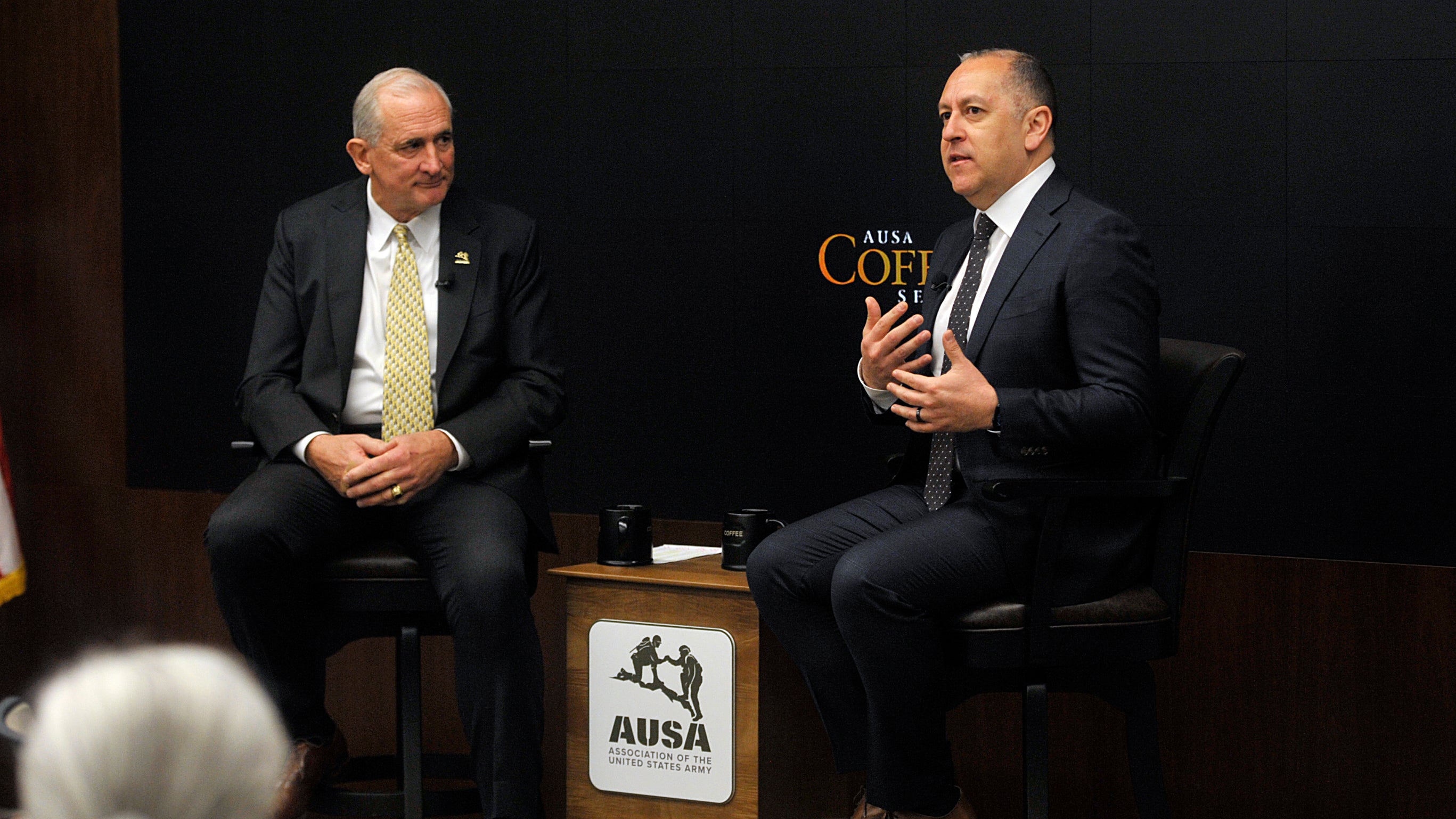Camarillo: Lack of Funding Has ‘Devastating’ Impact
Camarillo: Lack of Funding Has ‘Devastating’ Impact

The Army faces “devastating” effects if the $95 billion supplemental spending bill pending before Congress isn’t passed, Army Undersecretary Gabe Camarillo said.
Speaking April 3 at a breakfast hosted by the Association of the U.S. Army as part of its Coffee Series, Camarillo explained that since the Oct. 1 start of fiscal year 2024, the Army has been paying for operations including support for NATO missions and deployments that previously had been paid for with supplemental funding.
“We have been cash-flowing a lot of those costs with our own internal Army funding,” Camarillo said, adding that the amount of cash outlay so far is about $800 million. “We need that supplemental to reimburse us, because that’s essentially operations funds that we cannot use for other things like exercises that we had planned in Europe and the Pacific.”
The $95 billion supplemental spending bill includes about $60 billion in military aid for Ukraine as well as aid for Israel and Taiwan, the Associated Press reported.
The Army was further challenged fiscally as it spent the first five months of the fiscal year operating under a continuing resolution, stopgap funding that keeps spending at the previous year’s levels and prohibits new starts to programs. Congress passed and President Joe Biden signed the fiscal 2024 appropriations in late March.
Camarillo said that among the areas affected by the unpredictable funding are capabilities that protect soldiers and allow them to perform their missions, such as counter-unmanned aerial systems interceptors.
“There was on the order of 200 Coyote interceptors in the base [fiscal] 2024 budget that we really could have used those procurement dollars to buy them sooner,” Camarillo said, adding that the money to purchase the interceptors arrived just after the fiscal 2024 appropriations bill was passed by Congress on March 23.
Investments in infrastructure and housing for soldiers also are affected, he said, explaining that a lack of money means that work to replace or upgrade barracks has not begun. Additionally, the delays likely will “cost us more money to complete those projects” because of a rise in labor and construction costs, Camarillo said.
“It’s easy to talk about it as aggregate numbers or processes, but if you’re a soldier facing the threat of a small [unmanned aerial vehicle] system that’s lethal or if you’re living in a barracks that is substandard, these are very real daily things to you,” he said.
The cash-flow crunch affects operations at the unit level as well as procurement of critical munitions, Camarillo said. This includes funding for 155 mm artillery shells, which the Army aims “to be able to produce … at a rate of 100,000 rounds per month by the end of 2025,” he said.
Without the funding, he said, those procurements cannot happen, and that includes investment in facilities such as the Scranton Army Ammunition Plant, Pennsylvania, and the Holston Army Ammunition Plant, Tennessee. The supplemental is “vital to the industrial base,” it generates jobs in the U.S., and it supports Ukraine, reflecting an ongoing commitment, he said.
“The need to pass the supplemental is absolutely critical, not just because we’re supporting Ukraine in its conflict against Russia,” Camarillo said. “Not passing the supplemental would have devastating effects on the United States Army.”
Looking ahead to fiscal 2025, “we remain very hopeful, and I would urge prompt, speedy passage of those appropriations bills,” Camarillo said.

